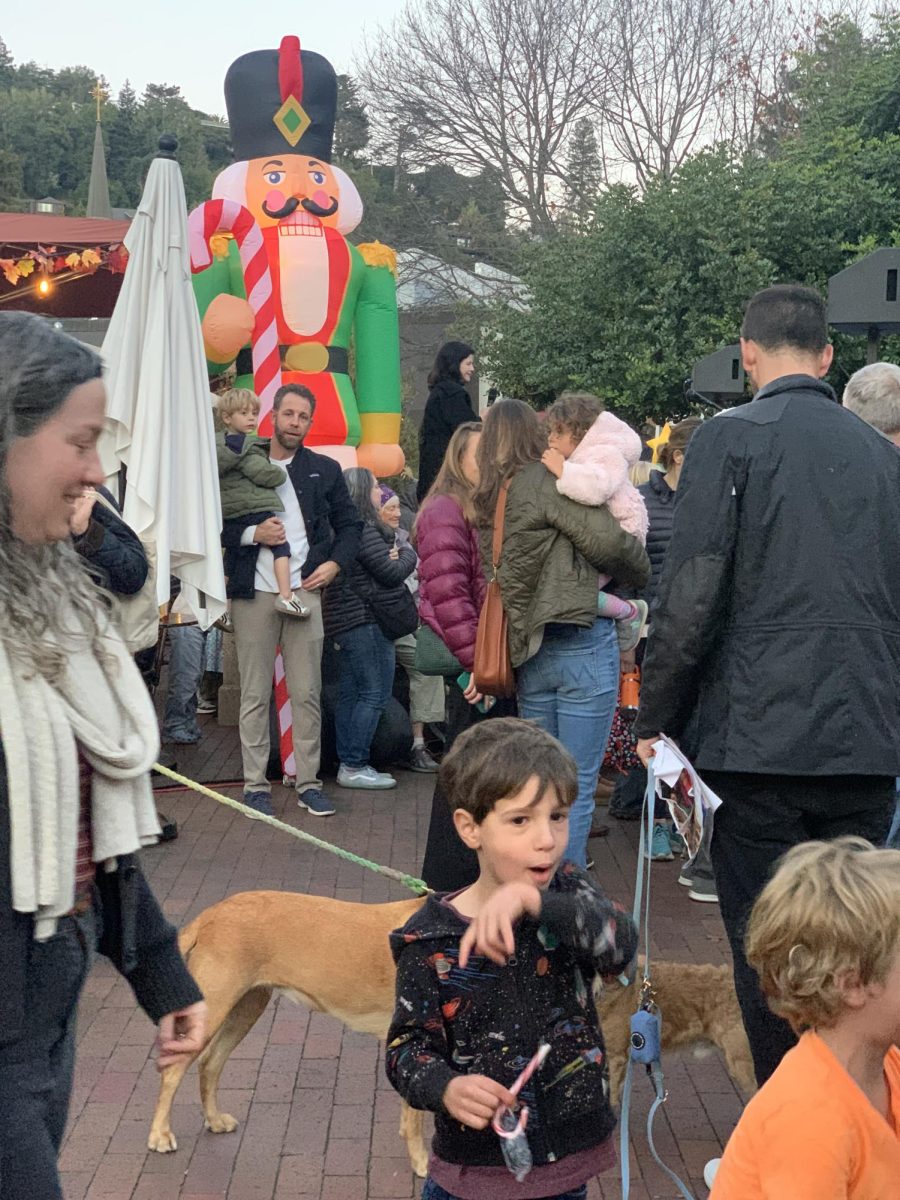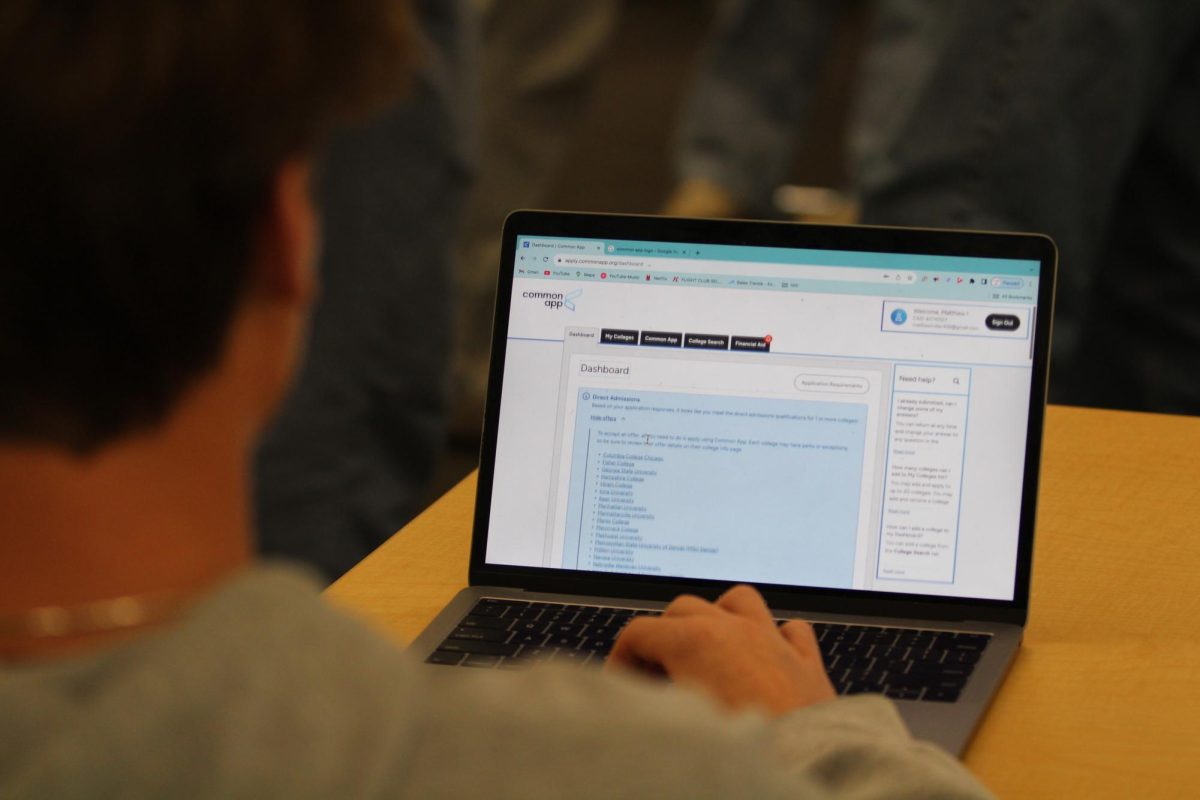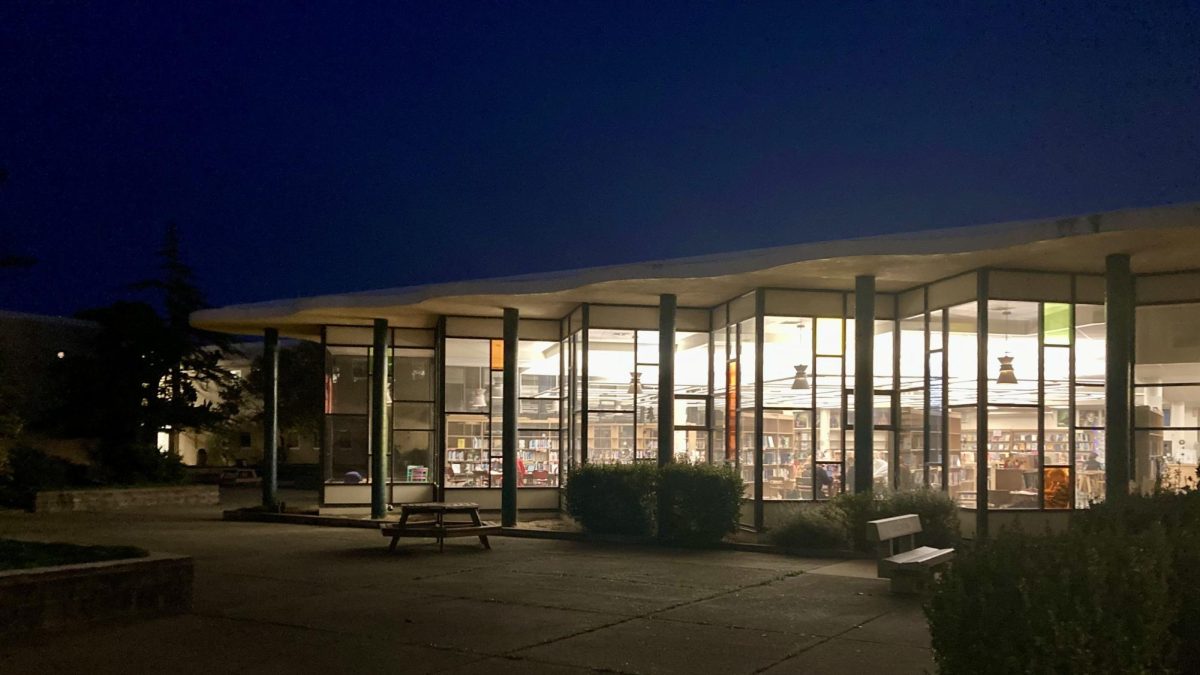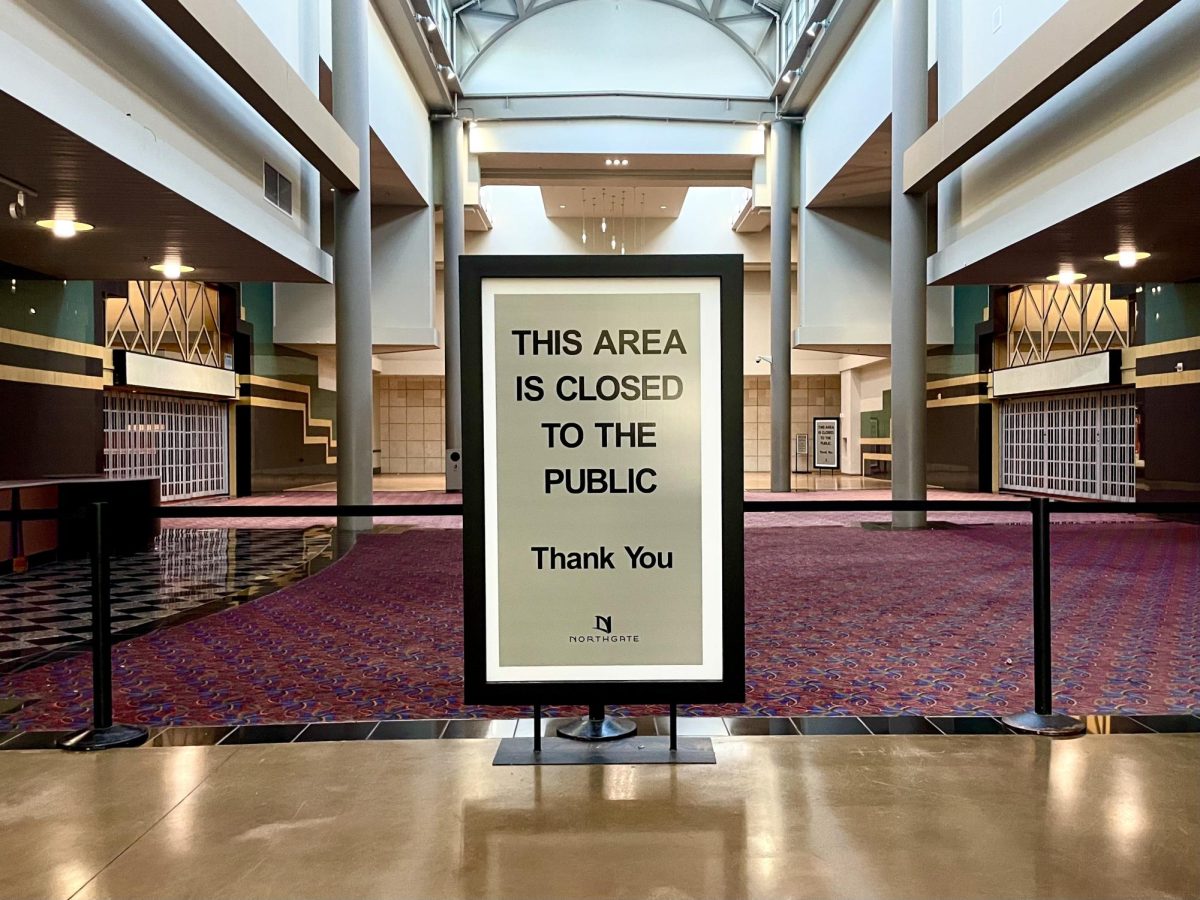Challenging the norm of learning inside the classroom, a new course entitled SAGE (Sustainable Agriculture, Government and Economics) will be offered next year. The course will expand upon the current sustainable agriculture class.
Sustainable Agriculture teacher Joe Stewart teamed up with social studies teacher Mike Kelemen to launch the class, which will begin in the 2017-2018 school year. It will be offered to incoming juniors and seniors.
The course spans two class periods, the existing Sustainable Agriculture science elective and the Government and Economics pairing that is required for seniors. SAGE will allow students to work on the Redwood farm while applying relevant government and economic ideas, according to Stewart and Kelemen.

“Sustainable Agriculture is about how we produce our food, where it comes from, and what are some of the implications associated with that. Of course a lot of those implications are associated with money, economics, policies, society and government issues. It’s just a strong pairing,” Stewart said.
The curriculum is centered around combining the skills of growing food with their economic applications, as well as allowing students to go deeper and gain insight into a variety of perspectives.
“The connection to government and economics was just a natural one. Agriculture is the way we significantly attack the planet and so looking at that in a scientific and environmental way is important. We aren’t getting the complete picture if we aren’t looking at other aspects,” Stewart said.
SAGE stemmed from Stewart’s original vision of creating a large academy, a group of coordinating classes, that applies to sustainable agriculture and modern issues.
“I started the Sustainable Agriculture course [in the] 2013-2014 [school year]. When I first pitched the program to the district, I imagined it to be part of an academy at some point. The first goal over the first couple of years was to establish the course, and establish the farm itself, which is a very important part of the class,” Stewart said.
Kelemen and Stewart hope to attract about 50 to 60 students to the course. Stewart’s original interest to create a sustainable agriculture course derived from ecology.
“It grew particularly out of my teaching of the ecology course that’s been here at the school since 1997. In that course we do work in the garden but it’s more experimental. A lot of students were interested in getting more deeply involved in growing food for production as opposed to just experimentation,” Stewart said.
Kelemen, who had previous interest in agriculture, got involved in the program when Stewart reached out to him.
Both believe that SAGE will attract students who have an interest in finding connections between three applicable subject areas.
“The person who teaches Government and Econ could tailor the examples and the class and topics that we study in Government and Economics towards sustainability and kind of the dovetail of what [Stewart] does,” Kelemen said.
Students will get the required credit for Government and Economics no matter if they are a junior or senior. According to Kelemen and Stewart, a junior who takes the class will still have the chance to complete AP U.S. History or regular U.S. History their senior year.
After getting the permission to start designing the course from Principal David Sondheim at the beginning of the 2016 fall semester, Stewart and Kelemen set to develop the curriculum and were ready to pitch the idea to the students during the January course workshops.
Students will participate in similar activities to what the current sustainable agriculture students do, such as working on the farm, attending field trips and selling their food at farmers’ markets, according to Stewart.
“Mr. Stewart and I would coordinate with projects. We still have to work out the details, but periodically we might go outside to the farm, and do something with our hands or do a project that has to do something with the community that’s a little more coordinated,” Kelemen said.
The monthly farmers’ market gives students a chance to a first-hand experience on selling their produce. SAGE will enable students to apply their learning of economics to the farmers’ market.
“With economics, we will also have some perspective on how to maximize [the farmer market’s income] and look at different ways of approaching the marketing,” Stewart said.
Ideally, Stewart and Kelemen want two classes running back-to-back to have a large portion of time to develop connections between topics. Kelemen said during one period, one of the classes would have Sustainable Agriculture, and the other would be in Government and Economics. In the next period, the two classes would switch topics.
SAGE is not the only class that Stewart hopes to integrate into a sustainable agriculture academy.
“Once [SAGE] was established, I did want to bring in other courses. Actually, down the road I’d like to see it even blossom out into a larger academy,” Stewart said. “Maybe include potentially an English component, or a Spanish language component. There are other possibilities like engineering, too.”





